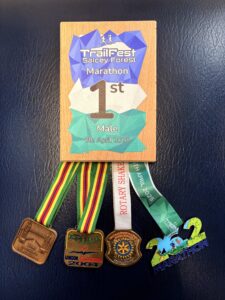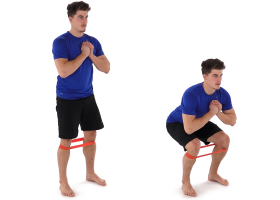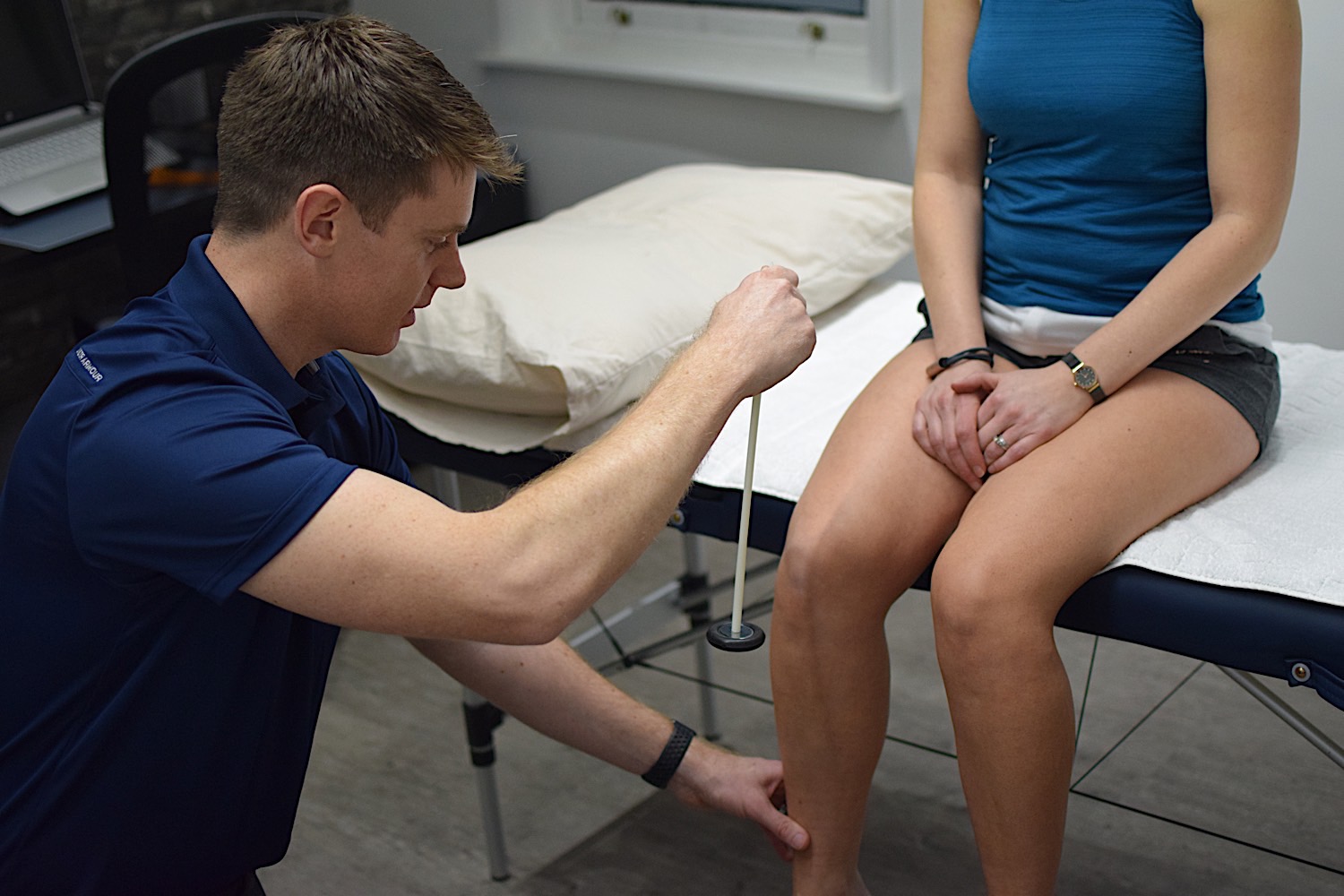26 Apr Marathon Season!
Feeling inspired to enter a marathon? Great, it’s an amazing challenge and something you will be able to look back on with pride!
Anyone who has run one knows that marathons are tough, that’s why they are such an achievement. 26.2 miles of running is a long way and not something to be taken lightly.

I speak from experience, having run four marathons and seen many clients over the past 20+ years who have run into trouble (terrible joke, not sorry). Having run a couple of half marathons last year I decided it was time to up my training and run another full marathon after an 18 year gap. Three weeks ago I reached that goal, running a trail marathon and loved it!
This blog is full of my thoughts and experiences of running, helping people achieve their goals and aiding their understanding of why things may have gone wrong. I’m not a running coach, or an elite runner, so you won’t find a running program for you to follow but you will hopefully pick up some useful info to help you on your way.
Training for a marathon takes time.
Spring is full of marathons and the ballot for London opens a year ahead. Whether you run London, or somewhere else, a year is great amount of time to prepare. Yes, some people follow a 12 or 16 week plan, and there are some very good ones out there. Just be mindful that it is a big challenge to get your body marathon ready in that time and if you catch a cold or have a minor injury then you risk finding yourself playing catch up which makes us physios get nervous! Elite runners spend years building up to the marathon.
Be fair to yourself and start training as early as possible. I tend to advise people who are aiming for an April marathon to be running a half marathon before Christmas. That gives you 12-16 weeks to take your long training runs from 13 miles up to 20ish which is much easier than trying to go from 5 miles to 20 in that time!
Marathons are hard, training can be harder.
On the day you’ll have completed all your training and the motivation and excitement of the day to help get you round. The tough bit can be getting yourself out on a cold, rainy Sunday morning to run 18 miles, on your own, after a busy week at work. These sessions are vital – they build up your physical fitness and mental resilience. Training with a club or a friend can really help, even if they just join you for part of the run. You could even add miles before or after your local ParkRun.
Don’t overdo it!
Running stresses your body in a good way, prompting it to respond by strengthening and adapting to cope better. The recovery time after a run is often overlooked but is when your body goes through its response. If you’ve had a hard run take the next day off. Every few weeks you might need to ease back a little for a week or so. Listen to your body; if running is starting to feel harder than it had been the week before you probably need to allow it to recover more.
Many running related problems are simply from trying to do too much, too soon. You can easily be caught out by:
- Building mileage up too quickly
- Increasing pace too quickly
- Increasing both mileage and pace together
- Putting more runs/miles into a week than you are used to
Vary your training.
Don’t get caught out just running at the same pace. Put variety in your schedule: long steady runs, shorter faster runs / intervals, hilly runs. It can be tricky to fit variety in each week around work and family. Consider building your training schedule over a 10 day period instead of 7 days. See what works for you.

It’s not just about running.
Strength is needed to propel you, especially up hills and help deal with the impact as your feet hit the ground.
Aim for 1 or 2 strength based sessionseach week. Include your calves, quadriceps (front of your thigh), hamstrings (back of your thigh) and gluteals (buttocks).
Footwear.
What a minefield! There are just so many types and so much conflicting advice out there. If you have a history of lower leg pains from running you may benefit from a gait analysis and advice on specific footwear. Most people won’t need this though. Try on a few pairs and see what feels comfortable for you. That brand that your running partner loves may not be right for you!
Fuel.
This is well covered by sites such as https://www.runnersworld.com/uk/nutrition/. However, some key considerations are:
- Vitamin D. You won’t produce this over the winter months so consider supplements.
- Calcium (e.g. in milk, cheese, yoghurt). In combination with Vit D this is vital to help your bones adapt to cope with the stress of running. Many people take way below the amount required so measure your intake and do your research on how much you need.
- Protein to help with your recovery and muscle building. Aim for around 1-.1.6g per kg of bodyweight when training.
- Pre-race carb loading. Start to consider your preparation for the days leading up to the event and put some of this into practice before your longest training runs.
 Marathons are not just about London!
Marathons are not just about London!
So many people are inspired by running the London Marathon. Yes, it is amazing and a very special experience, however, only about 3% of people get in through the ballot so if you want to run a marathon have a look around. Many cities host their own marathons and you could even go and explore greener areas with a trail marathon. Have a search on websites such as https://findarace.com/marathons
Get help early.
If something is starting to niggle don’t ignore it! Book in with a physio who will go through what the problem is, why it may have developed and come up with a plan of action. This is best done as early as possible!
If you’re starting to feel tight from all the training consider booking in with a sports masseur.
Goals.
There’s a steep learning curve with marathons. Set your expectations at a fair level for your experience and fitness. Completing a marathon is a fantastic achievement, regardless of finish time.
People often take 2, 3 or more marathons to really find out what training pattern works for them and to understand how to manage the event itself. Focus on getting to the start line in good shape, enjoy the day, feel proud of yourself and then start planning for the next one!
Now go and get started on that training and get in touch if you need any help!



No Comments